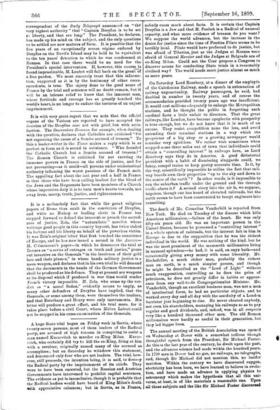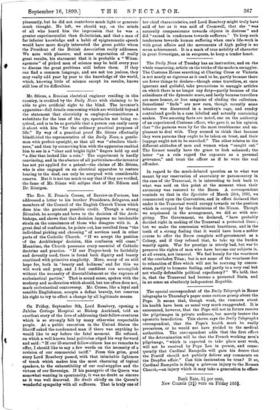The annual meeting of the British Association was opened on
Wednesday at Dover with a somewhat tedious though thoughtful speech from the President, Sir Michael Foster. As this is the last year of the century, he dwelt upon the past, and the advances science had made within the hundred years. In 1799 men in Dover had no gas, no railways, no telegraphs, and, though Sir Michael did not mention this, no lucifer matches. Within the century we have discovered oxygen, electricity has been born, we have learned to believe in evolu- tion, and have made an advance in applying physics to astronomy which makes the hypothesis that all this uni- verse, at least, is of like materials a reasonable one. Upon all these subjects and the like Sir Michael Foster discoursed pleasantly, but he did not contribute much light or generate much thought. He left, we should say, on the minds of all who heard him the impression that he was a greater experimentalist than dialectician, and that a man of far inferior knowledge and a habit of epigrammatic speech would have more deeply interested the great public whom the President of the British Association really addresses. We note with pleasure, and some expectation of really great results, his statement that it is probable a " Witen- agemote" of picked men of science may be held every year to discuss the great problems still before them. If they can find a common language, and are not too jealous, they may really add year by year to the knowledge of the world, which, knowing little of science except its results, knows still less of its difficulties.



































 Previous page
Previous page